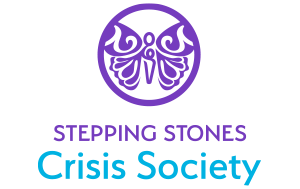
Understanding the Impact of Domestic Violence on Children: Breaking the Cycle of Hurt
Domestic violence affects not just the people directly involved, but also the children who witness it. It is a well-known fact that children who have experienced domestic violence at home are affected in multiple ways. The presence of domestic violence on children’s lives can affect them all the way to adulthood.
The good news is that, when approached correctly, a single loving and non-violent adult can change those children’s lives for the better and start them on their way to healing. Today we delve into the effects of domestic violence on children and the best ways to approach kids who have presented it at home.
Understanding the Impact of Domestic Violence on Children
When children see or hear violence at home, it can hurt them in plenty of ways. They might feel scared, sad, or angry. Sometimes, they act out because they don’t know how else to express their feelings. This can make it hard for them to focus in school or get along with others. Even when the violence stops, the memories and feelings can stick around for a long time, affecting how they see themselves and the world.
Even if a child isn’t the direct target of abuse, or witnesses it directly, it still affects their mental health. Even if parents think they are keeping it away from the kids, they will still know (or feel) that something is happening and it will affect them in some way.
Some of the most common effects of domestic violence on children are:
- Post Traumatic Stress Disorder (PTSD)
- Substance Abuse
- Depression
- Sleeping problems
- Nightmares
- Aggression
- Difficulty concentrating
- Intense anxiety
The impact of domestic violence on children is not just emotional; it can also have physical effects. Some children who witness violence at home may develop health problems like chronic illness or pain.
In Alberta, many children have to leave their homes because of domestic violence. Shelters are there to help them and their families. But sometimes, there’s not enough room for all the families who need help.
Last year, 8,020 children were unable to be sheltered because shelters did not have enough space to meet the level of demand. From these 2,955 children were unable to be sheltered because shelters did not have the resources to safely meet the needs of the adult survivors seeking shelter. 18% of adult survivors required additional childcare support. 17% of survivors answered yes to the question: Has your partner threatened to hurt the children? This is one of the three highest numbers recorded since ACWS members began gathering this information.

The Importance of Early Intervention for Children Exposed to Domestic Violence
The earlier we help children who have been through domestic violence, the better their chances of healing. That’s why it’s so important to reach out to them as soon as possible. By offering them support and care, we can help them understand their feelings and learn healthy ways to cope.
Imagine being a child who has seen scary things at home. You might feel confused or alone. But if someone comes along and says, “I’m here for you,” it can make all the difference. That’s why we need more people – like teachers, daycare workers, and coaches – who are trained to help kids who have been through tough times.
Early intervention is crucial because it can help prevent the long-term effects of domestic violence on children. When children receive support and care early on, they’re more likely to develop healthy coping skills and resilience. This can help them overcome the challenges they face and build brighter futures for themselves.
The Healing Power of Relationships for Children Affected by Domestic Violence
One of the most amazing things we’ve learned is that just one person who cares about a child can make a big difference. It could be a parent, a grandparent, or even a neighbour. As long as they’re kind and supportive, they can help a child feel safe and loved.
Think about a time when someone was there for you when you needed them. Maybe it was a friend who listened to you when you were upset or a teacher who encouraged you when you felt like giving up. That’s the kind of support every child deserves, especially when they’ve been through something as hard as domestic violence.
Building strong relationships with caring, non-violent adults can help children heal from the trauma of domestic violence. When children feel supported and loved, they’re better able to cope with their experiences and develop a sense of security and resilience. This can help them thrive despite the challenges they’ve faced.
There is a free course offered by the ACWS called “The Healing Brain: Supporting Children from Trauma to Resilience” that trains adults on how to support children who have seen domestic violence at home

Breaking the Cycle of Domestic Violence on Children and Building Resilience
We don’t want the pain of domestic violence on children to keep hurting them and their families for generations. That’s why it’s so important to break the cycle of violence. By offering support to children and families, we help them heal and build better lives for themselves.
But we can’t do it alone. We need everyone – parents, teachers, neighbours, and community leaders – to work together to end domestic violence on children. If we all do our part, we can create a world where every child feels safe, loved, and valued.
Preventing domestic violence on children requires a multifaceted approach that addresses the root causes of violence and supports those affected by it. This includes providing education and resources to families, supporting victims of violence, and holding perpetrators accountable for their actions. By working together, we can create communities where domestic violence is not tolerated and every child has the opportunity to grow up in a safe and loving environment.
Domestic violence on children is a big problem. By shining a light on the struggles of children who witness violence at home, we can help them heal and build brighter futures. Together, let’s break the cycle of hurt and build a world where every child feels safe, loved, and hopeful.
Find a Shelter
Shelters can help you in many ways other than just welcoming you for a time. They can also contact you with multiple other institutions and resources that will help you stay safe. From resources, help groups, directing you to food banks and other government programs. Domestic violence shelters are here to help you.
At Stepping Stones Crisis Society, you can always find help if you are considering leaving an abusive household in Northern Alberta, particularly in the Cold Lake and Bonnyville areas. You can reach our helpline at 780-594-3353 or contact us at ou******@St*******************.ca. We offer an emergency residential shelter for women, with or without their children, and their family pets (dog or cat).
If you find this article useful or want to support our cause, please donate here. Every dollar counts and our clients will greatly appreciate it.


